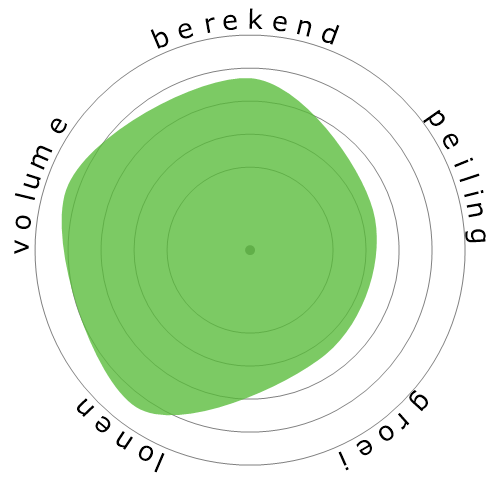Advocaten
Waar Wilt U Hierna Heen Gaan?
Of, verken dit beroep in meer detail...


Wat laat deze sneeuwvlok zien?
Wat is dit?
We beoordelen banen op basis van vier factoren. Deze zijn:
- Kans op automatisering
- Banengroei
- Salarissen
- Aantal beschikbare posities
Dit zijn enkele belangrijke zaken om over na te denken bij het zoeken naar een baan.
Mensen bekeken ook
Berekend automatiseringsrisico
Lage Risico (21-40%): Banen op dit niveau hebben een beperkt risico op automatisering, omdat ze een mix van technische en mensgerichte vaardigheden vereisen.
Meer informatie over wat deze score is en hoe deze wordt berekend, is beschikbaar hier.
Gebruikerspeiling
Onze bezoekers hebben gestemd dat ze niet zeker weten of dit beroep zal worden geautomatiseerd. Echter, werknemers kunnen mogelijk geruststelling vinden in het geautomatiseerde risiconiveau dat we hebben gegenereerd, dat een kans van 23% op automatisering aangeeft.
Wat denk je dat het risico van automatisering is?
Wat is de kans dat Advocaten binnen de komende 20 jaar vervangen zal worden door robots of kunstmatige intelligentie?
Gevoel
De volgende grafiek wordt weergegeven waar er voldoende stemmen zijn om betekenisvolle gegevens te produceren. Het toont de resultaten van gebruikerspeilingen in de loop van de tijd en biedt een duidelijk beeld van sentimenttrends.
Sentiment over tijd (per kwartaal)
Gevoel over tijd (jaarlijks)
Groei
Het aantal 'Lawyers' vacatures zal naar verwachting stijgen met 5,2% tegen 2033
Totale werkgelegenheid en geschatte vacatures
Bijgewerkte prognoses zijn verschuldigd 09-2025.
Lonen
In 2023 was het mediane jaarloon voor 'Lawyers' $ 145.760, of $ 70 per uur
'Lawyers' werden 203,3% hoger betaald dan het nationale mediane loon, dat op $ 48.060 stond.
Lonen in de loop van de tijd
Volume
Vanaf 2023 waren er 731.340 mensen in dienst als 'Lawyers' binnen de Verenigde Staten.
Dit vertegenwoordigt ongeveer 0,48% van de werkende bevolking in het hele land.
Anders gezegd, ongeveer 1 op de 207 mensen is werkzaam als 'Lawyers'.
Functieomschrijving
Vertegenwoordig cliënten in strafrechtelijke en civiele procedures en andere juridische procedures, stel juridische documenten op, of beheer of adviseer cliënten over juridische transacties. Mogelijk gespecialiseerd in één gebied of kan breed praktijk uitoefenen in vele rechtsgebieden.
SOC Code: 23-1011.00
Opmerkingen (233)
They'll do less errors, and don't require sleep. No more receptionist that is away. Longer opening hours.
Why do you say robots have no empathy, you fillthy racist? They have it. Robots would probably beat you up.
Not that I'd expect someone who doesn't even know the definition of 'racist' and just flings the word around however would know what empathy is...
And besides, you never even addressed what they said. They didn't even bring up empathy, as their point was about people not wanting a robot to defend them. You've brought up a completely nonsensical rebuttal to an argument that doesn't exist.
These are the tasks that robots won't be able to fulfill for at least a decade from now.
These are the tasks that robots won't be able to fulfill for at least a decade from now.
Reageer op reactie